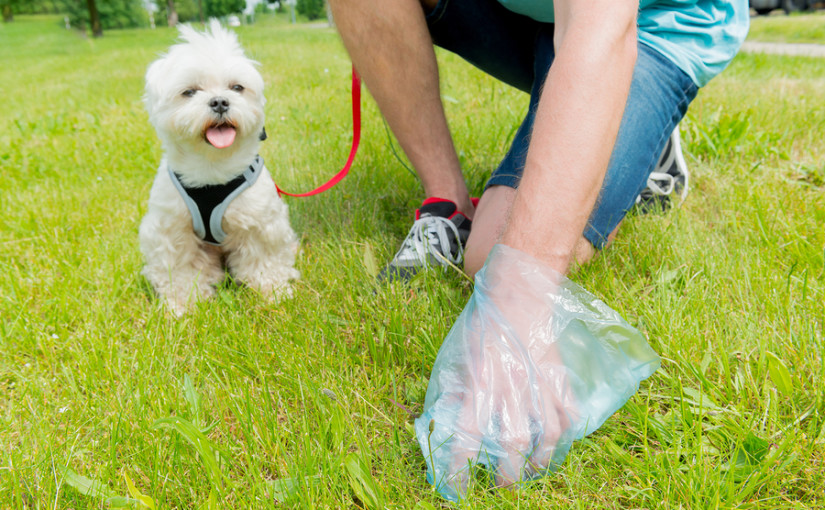The Big Scoop campaign has kicked off this week; organised by Dog’s Trust and Keep Britain Tidy, this campaign aims to highlight how easy it is to scoop your dog’s poop, and appeals to dog owners to do just that. The Big Scoop will support local councils, and educate dog owners. A survey conducted recently in Cardiff showed that the general public dislike dog mess more than general litter or people smoking in public, making dog poo the nation’s biggest bugbear.
The UK is home to over 8 million canines, who produce over 1000 tonnes of waste between them every day – that weighs as much as 200 double-decker buses! Of course, this wouldn’t be a problem if all of the mess was scooped up, but this is sadly far from the truth.
Alex Jackson, who is Head of Campaigns at Dogs Trust, says:
“Dog poo is still one of the biggest complaints received by local councils every year, with 81,000 complaints received from members of the public last year alone, so it’s important that everyone is aware of how simple disposing of dog mess can be.”
Owners who don’t scoop their dog’s poop are breaking the law, and face an £80 fine if caught. The problem is ‘if caught’; many irresponsible dog owners who don’t scoop, commit the act when nobody is about, or by cover of darkness, knowing they will get away with it.
But why do we dislike dog poo so much? And why should we clear it up straight away from our streets, paths, and parks? We explore the reasons below.
Health hazard

Not only is dog mess unsightly and smelly, it is – more importantly – a health hazard. Contact with dog faeces can lead to toxocariasis in humans, which causes serious illness, and can even lead to blindness. Young children are sadly most at risk from this, as they are less likely to wash their hands, and more likely to put their fingers and other things in their mouths.
Chelmsford City Council explained the symptoms of toxocariasis as:
“Seizures, breathing difficulties, a very red and painful eye, and clouded vision, usually only in one eye. Left untreated, toxocariasis can cause permanent loss of vision in the affected eye.”
Toxocariasis is only one infection though; dog poo is a common carrier of all of the following diseases, infections, and parasites:
- Roundworms
- Tapeworms
- Hookworms
- Whipworms
- Parvo
- Corona
- Giardiasis
- Cryptosporidiosis
- Campylobacteriosis
- Salmonellosis
Not only can direct contact with faeces cause problems, but the worms present in some poo can stay in the soil for long periods of time, meaning your garden or local grassy area is hazardous to anyone who touches the ground – including your own dog, other dogs, and humans. That picnic in the park suddenly doesn’t seem as appealing.
Environmental hazard

If dog mess isn’t scooped up, it often makes its way into our waterways via storms and rainwater.
The USA Environmental Protection Agency stated:
“Just two to three days of waste from 100 dogs can contribute enough bacteria, nitrogen and phosphorous to close 20 miles of a bay-watershed to swimming and shell-fishing”
In fact, excess nitrogen in our waterways can prevent fish and other underwater life from breathing.
Bacteria from dog poo can also get into the air we breathe; a recent study of air samples in American states found that 10 to 50 per cent of the bacteria found in the air came from directly dog faeces.
Why you should scoop your poop
In summary, the reasons you MUST scoop your poop include:
- Obeying the law in the UK
- Preventing unnecessary infection and disease in humans
- Preventing pollution of waterways and the air we breathe
- And, being a good neighbour. Nobody likes a non-scooper! Be a Scooperhero and move that dog mess ASAP – for you, your dog, the local community, and the environment.
Featured image credit: Amaviael
